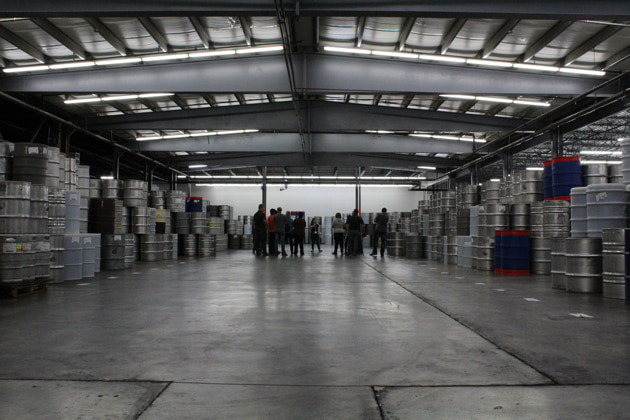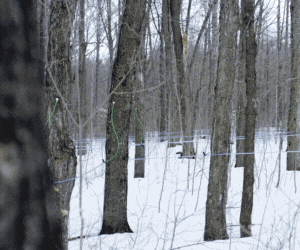Sap & Syrup
Quebec warehouses still flush with excess syrup
Crop not as bad as thought
By PETER GREGG | JANUARY 8, 2019
LONGUEUIL, Que.—Quebec reserve warehouses are still full, despite a crop that was 30 percent off, with only the far eastern edges of the province suffering big losses.
“Our crop was not disastrous,” said Simon Trépanier, executive director of the Federation of Quebec Maple Syrup Producers (FPAQ).
The federation went into last season with approximately 96 million pounds of syrup in what is known as the strategic reserve, which is a group of warehouses filled with barrels.
This year, as of late fall the reserve still held 95 million pounds, Trepanier said. Eighty million pounds of those holdings are table grade syrup. Only 20 to 22 million pounds are estimated to be industrial syrup.
“Our sales are not that good,” Trepanier told The Maple News during the North American Maple Syrup Council’s annual meeting in Concord, N.H. this fall. “We’re flat compared to last year.”
Because much of the federation’s sales are in the United States, and the U.S. industry has enjoyed back to back record breaking seasons, Trepanier said the market was oversupplied and there was a decreased need for Quebec’s syrup.
The good news is that exports of the province’s syrup are up 10 percent this year, he said.
Emotions are running high in Quebec over the payment to producers, especially a rarely used compensation system that in effect takes from the rich and gives to the poor.
Payouts right now are at $2.95 for Golden Delicious, 2.94 for Amber Rich; 2.84 for Dark Robust and 2.55 for Very Dark Strong.
But now, because of the harsh season for some select producers in the eastern townships, an 8 percent reduction on all producers in thriving areas will be taken and given to producers in the suffering areas as bonus, matching 20 percent of that producer’s historical average.
Trepanier said the payouts to short-crop producers are an advance on non-sold syrup sitting in the warehouse. He added that the situation is not a "tax" on the other producers but rather a temporaory reduction on what those producers would otherwise receive.
"Money from these advances provident of the money recieved from the sales of syrups 2018, which decreases momentarily by 8 percent payments to all producers," Trepanier said in an email to The Maple News.
“The production was so variable,” Trepanier said. “We never saw that before.”
This socialistic solution to make producers whole has many up in arms, and sugarmakers who have long grumbled about the socialistic nature of the federation are grumbling even louder now.
“It’s a lot of emotion,” Trepanier said.
He defended the overall value of the federation, which has been in operation since 2000.
“We stabilize the market,” he said.

































